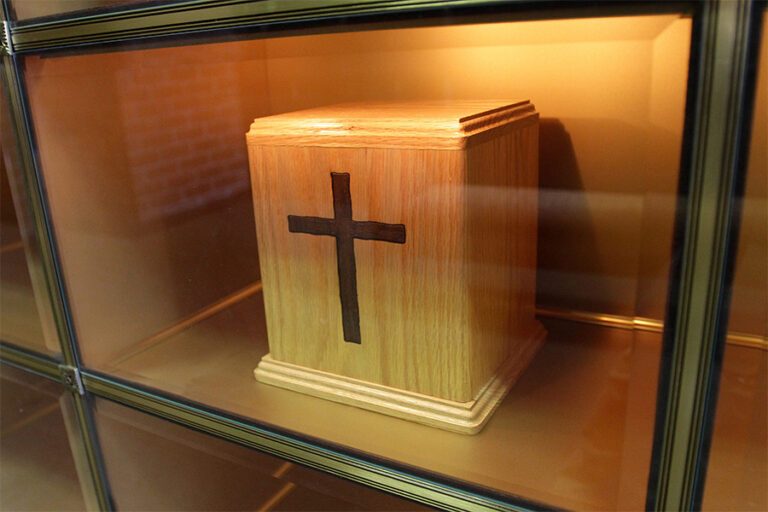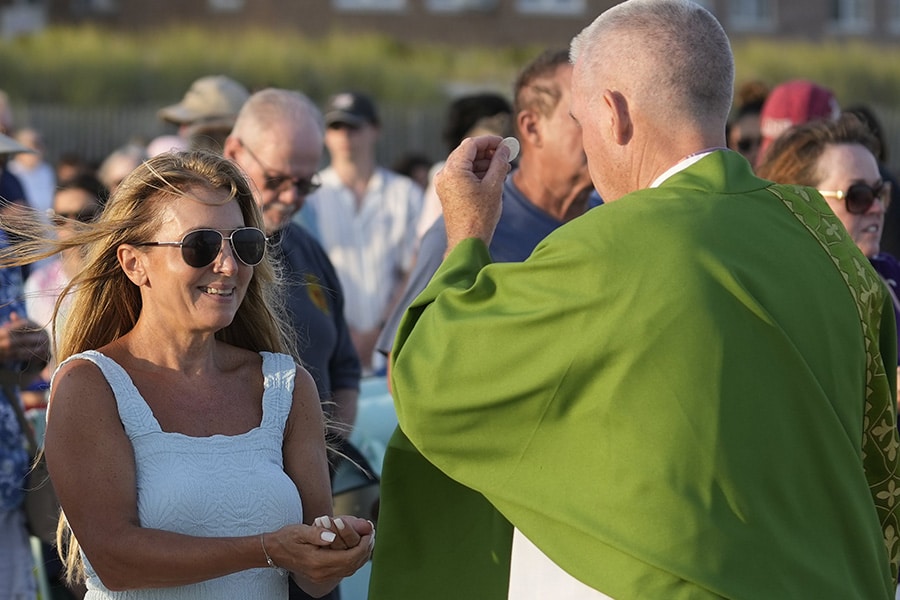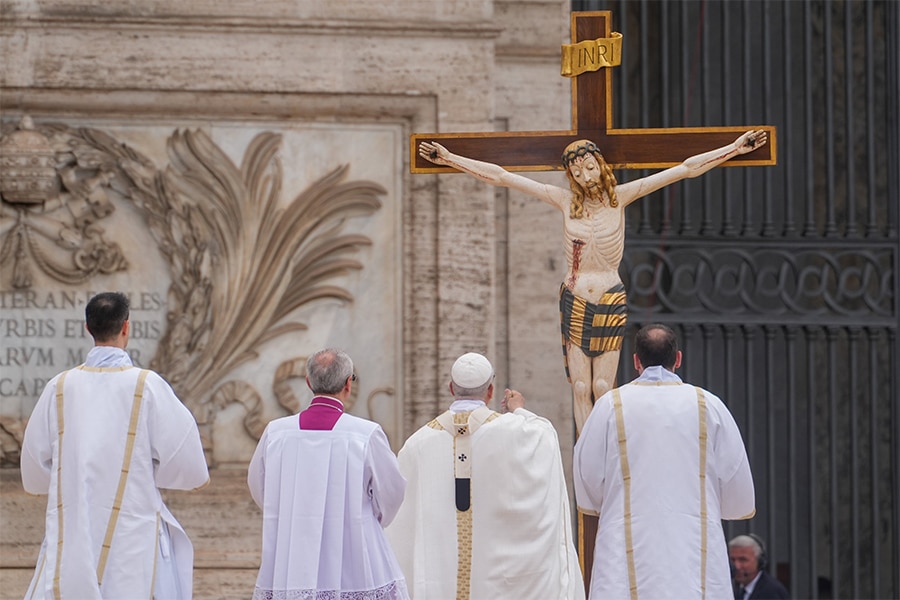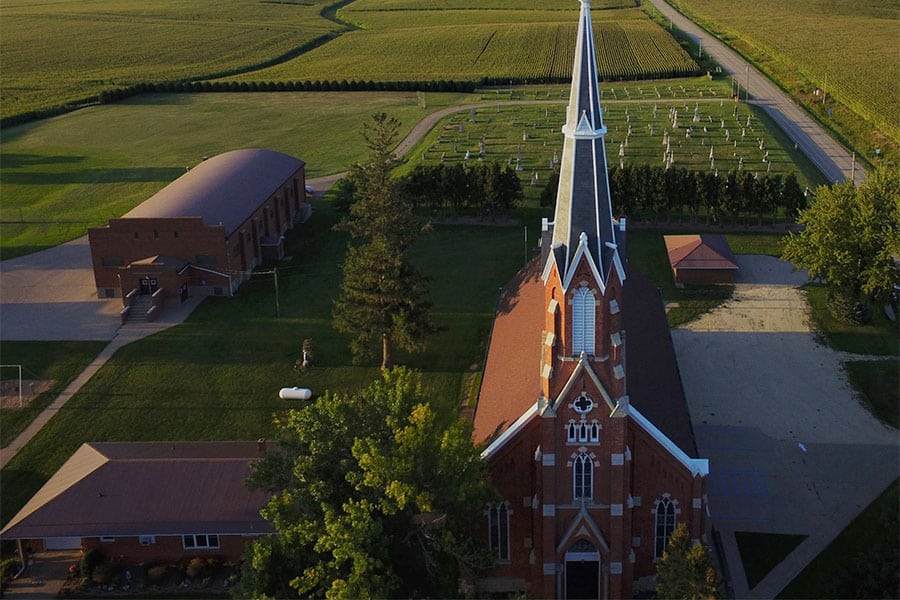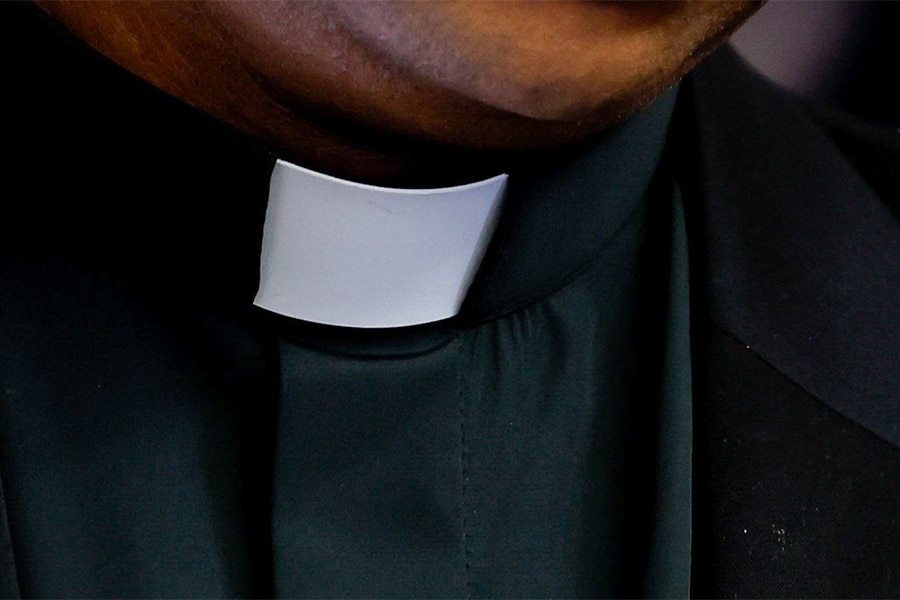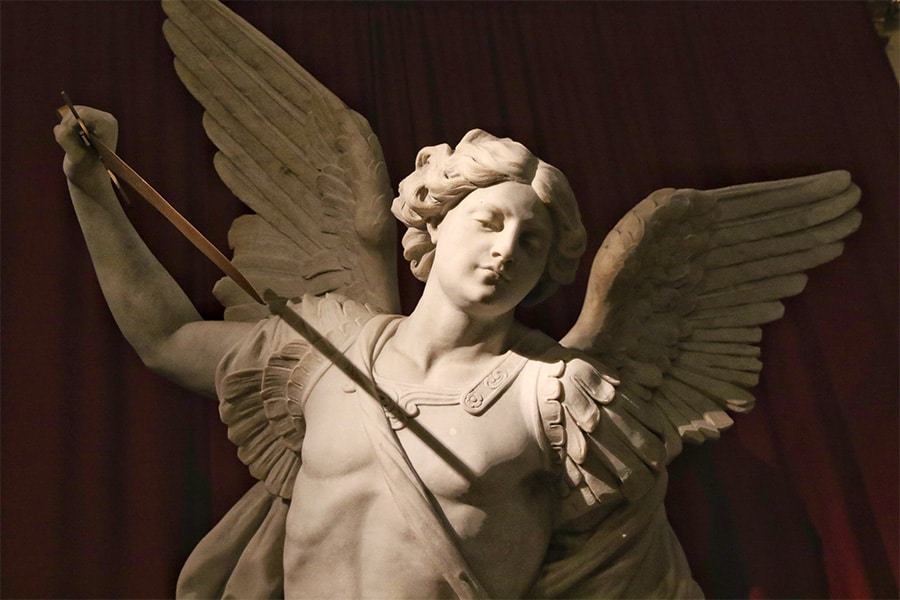Q: What is the position or rule of the church concerning cremation? (Indiana)
A: There is a short answer to your question in Paragraph 2301 of the Catechism of the Catholic Church, which tells us that: “The Church permits cremation, provided that it does not demonstrate a denial of faith in the resurrection of the body.”
But we can gain a fuller understanding of the church’s teaching if we dig a little deeper into the relevant documents. In particular, in the Order of Christian Funerals (that is, the book governing the ceremonies for Catholic funeral liturgies) there is an appendix approved for use in the United States which states: “Although cremation is now permitted by the Church, it does not enjoy the same value as burial of the body. The Church clearly prefers and urges that the body of the deceased be present for the funeral rites, since the presence of the human body better expresses the values which the Church affirms in those rites” (413).
In other words, cremation is technically — though not enthusiastically — allowed by the church, as long as it is not done for reasons or motivations contrary to the Catholic teaching on the dignity of the human body. For example, choosing to cremate the body of a loved one who died of a highly infectious disease in order to avoid spreading contagion would be an acceptable motive; but opting for cremation because of a belief that “the body is just an empty shell” would not be.
The appendix in the Order of Christian Funerals goes on to give some practical directives. Specifically, “the cremated remains of a body should be treated with the same respect given to the human body from which they come. This includes the use of a worthy vessel to contain the ashes, the manner in which they are carried, the care and attention to appropriate placement and transport, and the final disposition. The cremated remains should be buried in a grave or entombed in a mausoleum or columbarium. The practice of scattering cremated remains on the sea, from the air, or on the ground, or keeping cremated remains in the home of a relative or friend of the deceased are not the reverent disposition that the Church requires” (417).
The same document further indicates that if a body is to be cremated, ideally this would happen after the funeral so that the integral body could be present at the Mass (418).
It may seem odd to some of our modern sensibilities to attach so much importance to a dead body, when the soul of our loved one is no longer present within it. But it is always good to recall how “incarnational” our Catholic faith is. That is, we believe that God’s coming to earth as man has rendered many aspects of our humble, tangible material reality as sacred. As the Order of Christian Funerals urges us to recall: “The body of a deceased Catholic Christian is also the body once washed in Baptism, anointed with the oil of salvation, and fed with the Bread of Life. … The body of the deceased brings forcefully to mind the Church’s conviction that the human body is in Christ a temple of the Holy Spirit and is destined for future glory at the resurrection of the dead” (412).
This reverence for the bodies of the dead is a logical consequence of what we profess in the Creed we recite at Mass every Sunday: that we believe in the “resurrection of the body.” Just as Jesus’ body was resurrected, and as Mary’s immaculately conceived body was assumed into heaven, so too will “God, in his almighty power, definitively grant incorruptible life to our bodies by reuniting them with our souls, through the power of Jesus’ Resurrection” (997).
Read More Question Corner
Copyright © 2024 OSV News

